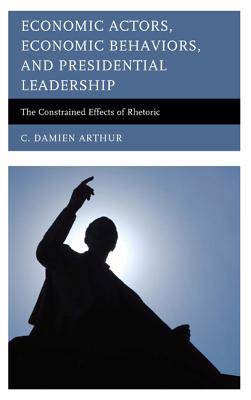
- Afhalen na 1 uur in een winkel met voorraad
- Gratis thuislevering in België vanaf € 30
- Ruim aanbod met 7 miljoen producten
- Afhalen na 1 uur in een winkel met voorraad
- Gratis thuislevering in België vanaf € 30
- Ruim aanbod met 7 miljoen producten
Zoeken
Economic Actors, Economic Behaviors, and Presidential Leadership
The Constrained Effects of Rhetoric
C Damien Arthur
€ 93,45
+ 186 punten
Uitvoering
Omschrijving
There is considerable disagreement about whether the U.S. president has a direct and measurable influence over the economy. The analysis presented in Economic Actors, Economic Behaviors, and Presidential Leadership: The Constrained Effects of Rhetoric suggests that while presidents have increased their rhetoric regarding the economy, they have not had much success in shaping it. Considering this research, Arthur argues that the president's decision to address the economy so often must stem from a symbolic placation or institutional necessity that is intended to comfort constituencies or somehow garner electoral advocacy from the party's base. No other viable explanation exists given the lack of results presidents obtain from discussing the economy and their persistent determination to do so. This discrepancy suggests that presidential rhetoric on the economy is, at best, a tool used to appear concerned to everyone and toe the party-line to their base. Arthur presents an overview of economic rhetoric from the presidential office that will be of interest to scholars of the economy and political communication.
Specificaties
Betrokkenen
- Auteur(s):
- Uitgeverij:
Inhoud
- Aantal bladzijden:
- 166
- Taal:
- Engels
- Reeks:
Eigenschappen
- Productcode (EAN):
- 9780739199190
- Verschijningsdatum:
- 2/08/2016
- Uitvoering:
- Paperback
- Formaat:
- Trade paperback (VS)
- Afmetingen:
- 152 mm x 229 mm
- Gewicht:
- 272 g

Alleen bij Standaard Boekhandel
+ 186 punten op je klantenkaart van Standaard Boekhandel
Beoordelingen
We publiceren alleen reviews die voldoen aan de voorwaarden voor reviews. Bekijk onze voorwaarden voor reviews.








